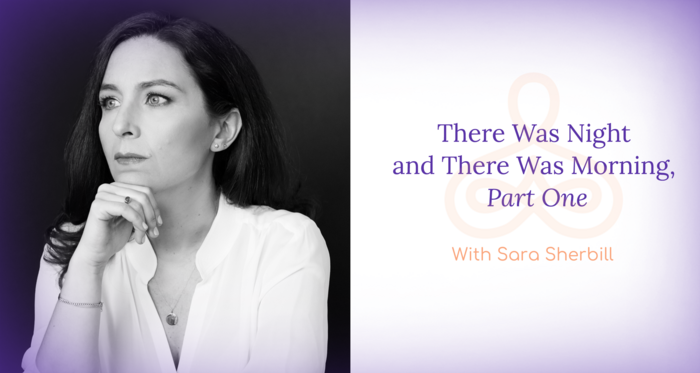In a recent episode of the Healthful Woman podcast, “There Was Night and There Was Morning, Part One” Host, Dr. Nathan Fox talks is joined with Sara Sherbill the author of “There Was Night and There Was Morning: A Memoir of Trauma and Redemption.” During the podcast they discuss Sara’s background and her journey to writing and publishing her book.
Sara’s Story
Sara’s Background and Career
Sara Sherbill is a writer and editor who worked in publishing in New York. Before publishing her memoir, she wrote personal essays for many years. She and Dr. Fox first met in high school in Chicago. Sara first shared her story publicly in an article for The Forward, before expanding it into a full-length book.
Sara’s Childhood and Abuse
Sara grew up in a religious household as the oldest of five children. Her father was a rabbi with a large congregation outside of Chicago. While the family appeared happy in public, there was abuse taking place at home. Sara described carrying the burden of this hidden abuse and the pressure to maintain the image of a normal family. “A secret is just something that you’ve been told or you just infer or you just intuit, you cannot talk about. So while we were presenting as this kind of like, you know, happy, normal, wholesome religious family, I was carrying around this secret that I had lived through a lot of abuse and so had other members of my family.”
Sara’s Mental Health
Sara experienced depression and anxiety from a young age but kept these struggles to herself. She was aware that the outward image she presented did not match her internal reality. As a child, she confided in a close friend, Nicole, who became a long-term source of support. In high school, one teacher noticed that something was occurring and offered her emotional support, which Sara found helpful at a time when there were few mental health resources available in schools.
Sara’s Writing
Sara began writing the memoir in college during a creative writing course. She put the manuscript aside for many years due to concerns about the impact it might have on her family. At the time, her father was still a practicing rabbi, her parents were married, and some of her siblings were still living at home. She felt conflicted about sharing her story while trying to protect her family.
Sara’s Decision to Publish
Sara’s mother eventually left her father after 40 years of marriage, which created the space for Sara to consider publishing her story. Writing and releasing the book allowed her to begin important conversations and connect with others who had experienced similar situations.
Sara’s Father’s Death
The memoir ends shortly after Sara’s father died during the COVID-19 pandemic. She did not attend his funeral or participate in traditional mourning practices. Dr. Fox suggested that writing the book may have served as a substitute for those rituals. Sara agreed, noting that many people reached out to her after reading the book, which helped her process the experience. Sara made it clear that she did not write the book to portray her father as a monster. “I didn’t want to write a book about my father where he’s, you know, a monster because he’s not a monster. He was not a monster. He was a man, a broken man who, himself, was traumatized.” She sees his behavior as part of a cycle of trauma, explaining that he had also been abused by his father. Her story highlights how intergenerational trauma can affect families over time.
Learn More
To learn more about Sara’s story, listen to Sara’s first episode of the Healthful Woman podcast. For part two of her story, listen to the podcast or read the blog. For women’s health concerns, contact Carnegie Women’s Health today by completing our online contact form.

